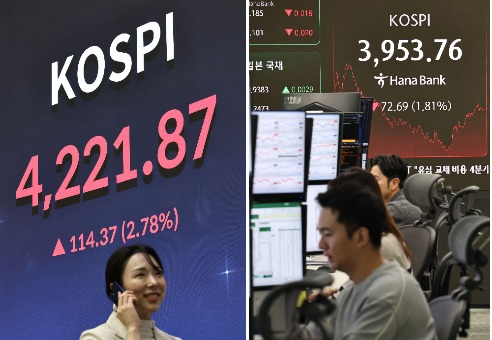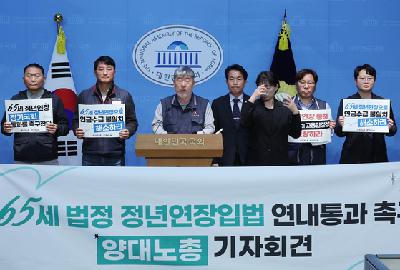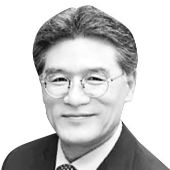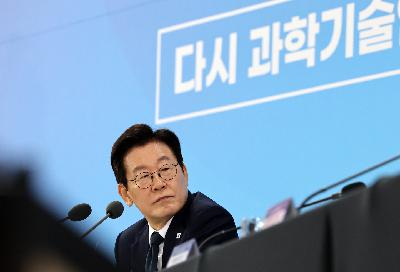‘Avoid using 'collapse'': Why the Kospi became a political battleground
Update: 2025-11-08
Description
This article is by Park Eun-jee and read by an artificial voice.
When the benchmark Kospi index surged past the psychologically significant 4,000 mark last month, the Democratic Party (DP) was quick to credit the governing party and the Lee Jae Myung administration.
But when it plunged back below the threshold over the past days, the party urged reporters to avoid using the word "collapse" - a reaction critics say reflects the risks of politicizing market movements.
"Using the word 'collapse' simply because the index fell below a certain number does not reflect reality. I believe [reporters] should be cautious about that." DP chief spokesperson Park Soo-hyun told reporters on Wednesday.
"Today's sharp drop can be seen as a market correction. It's a fluctuation that naturally follows a rise - a sufficiently predictable trend," he added.
The day's Kospi saw a 2.85 percent decline, during which the index touched 3,867.81 before closing at 4,004.42. The bourse continued to slip on Friday, falling 1.81 percent to close at 3,953.76 - breaking an 11-day streak of finishes above the 4,000 mark.
Against the downbeat Kospi backdrop, the People Power Party (PPP) slammed Park for cherry-picking market movements.
"Not long ago, they were patting themselves on the back, calling the uptick the 'Korea Premium,' but now that the index has dropped below 4,000, they're telling reporters not to use the word 'collapse.' It is absurd how far they're going to try and control the press," the party said in a statement. "It is equally irrational to treat stock index fluctuations as political achievements," it critiqued.
'Borrow to invest' flashpoint
The wrangling over the Kospi is not new under President Lee, who is aggressively pushing to achieve his campaign pledge of the index reaching 5000 during his term.
Kwon Dae-young, vice chair of the Financial Services Commission, found himself at the center of controversy after he endorsed taking on debt to invest in stocks.
"Up until now, we have viewed debt-based investing too negatively, but it can also be seen as a form of leverage," he said in the radio program "Kim Hyun-jung's News Show" on Tuesday as he answered a question about the growing number of young investors borrowing to buy stocks.
While some may agree that the comment is technically defensible, it struck a nerve with the public and the PPP because it came from a high-ranking official from the country's top financial regulatory agency who is expected to warn against risky retail borrowing, not normalize it.
The public pounced on Kwon's remark, with one comment on a Yonhap News article contrasting debt for stocks and housing.
"Why is borrowing for stocks seen as leverage, but borrowing for housing treated like a crime?" a comment said.
Korean investors - especially younger generations - are already taking on significant levels of risk.
Margin loan balances - a key indicator of debt-fueled stock investment - reached 25.88 trillion won ($17.7 billion) as of Thursday, marking an all-time high, according to the Korea Financial Investment Association. Margin loans refer to funds borrowed by investors from securities firms to purchase stocks, for which the purchased stocks serve as collateral.
Stocks over bricks
The president has openly expressed the need to calm the real estate market in justifying the administration's strict regulation on mortgage loans while promoting the importance of boosting the Kospi.
The rationale is that too much money is locked into mortgages, which could trigger speculation and distress domestic demand - an arrangement often cited by economists as the key factor suppressing Korea's growth potential.
"There is a lot of money in Korea, but where is it going?" Lee said during a meeting with executives of securities firms on Sept. 18. "So far, it has mostly been concentrated in real estate investment and speculation, which I believe is making the national economy unstable."
Still, brokerages at home and abroad continue t...
When the benchmark Kospi index surged past the psychologically significant 4,000 mark last month, the Democratic Party (DP) was quick to credit the governing party and the Lee Jae Myung administration.
But when it plunged back below the threshold over the past days, the party urged reporters to avoid using the word "collapse" - a reaction critics say reflects the risks of politicizing market movements.
"Using the word 'collapse' simply because the index fell below a certain number does not reflect reality. I believe [reporters] should be cautious about that." DP chief spokesperson Park Soo-hyun told reporters on Wednesday.
"Today's sharp drop can be seen as a market correction. It's a fluctuation that naturally follows a rise - a sufficiently predictable trend," he added.
The day's Kospi saw a 2.85 percent decline, during which the index touched 3,867.81 before closing at 4,004.42. The bourse continued to slip on Friday, falling 1.81 percent to close at 3,953.76 - breaking an 11-day streak of finishes above the 4,000 mark.
Against the downbeat Kospi backdrop, the People Power Party (PPP) slammed Park for cherry-picking market movements.
"Not long ago, they were patting themselves on the back, calling the uptick the 'Korea Premium,' but now that the index has dropped below 4,000, they're telling reporters not to use the word 'collapse.' It is absurd how far they're going to try and control the press," the party said in a statement. "It is equally irrational to treat stock index fluctuations as political achievements," it critiqued.
'Borrow to invest' flashpoint
The wrangling over the Kospi is not new under President Lee, who is aggressively pushing to achieve his campaign pledge of the index reaching 5000 during his term.
Kwon Dae-young, vice chair of the Financial Services Commission, found himself at the center of controversy after he endorsed taking on debt to invest in stocks.
"Up until now, we have viewed debt-based investing too negatively, but it can also be seen as a form of leverage," he said in the radio program "Kim Hyun-jung's News Show" on Tuesday as he answered a question about the growing number of young investors borrowing to buy stocks.
While some may agree that the comment is technically defensible, it struck a nerve with the public and the PPP because it came from a high-ranking official from the country's top financial regulatory agency who is expected to warn against risky retail borrowing, not normalize it.
The public pounced on Kwon's remark, with one comment on a Yonhap News article contrasting debt for stocks and housing.
"Why is borrowing for stocks seen as leverage, but borrowing for housing treated like a crime?" a comment said.
Korean investors - especially younger generations - are already taking on significant levels of risk.
Margin loan balances - a key indicator of debt-fueled stock investment - reached 25.88 trillion won ($17.7 billion) as of Thursday, marking an all-time high, according to the Korea Financial Investment Association. Margin loans refer to funds borrowed by investors from securities firms to purchase stocks, for which the purchased stocks serve as collateral.
Stocks over bricks
The president has openly expressed the need to calm the real estate market in justifying the administration's strict regulation on mortgage loans while promoting the importance of boosting the Kospi.
The rationale is that too much money is locked into mortgages, which could trigger speculation and distress domestic demand - an arrangement often cited by economists as the key factor suppressing Korea's growth potential.
"There is a lot of money in Korea, but where is it going?" Lee said during a meeting with executives of securities firms on Sept. 18. "So far, it has mostly been concentrated in real estate investment and speculation, which I believe is making the national economy unstable."
Still, brokerages at home and abroad continue t...
Comments
In Channel










![[WHY] ‘Sushi on wheels’: Is Korea's obsession with white and black cars finally changing? [WHY] ‘Sushi on wheels’: Is Korea's obsession with white and black cars finally changing?](https://beyondwordsneproduction.blob.core.windows.net/production/public-upload/2025-11-07/f6ca2fa9-e8d9-44aa-ba2b-61528b6f581c-d763d80be022208534ba4afdfb346f1920251107-1182-x8yqsf.jpg)













